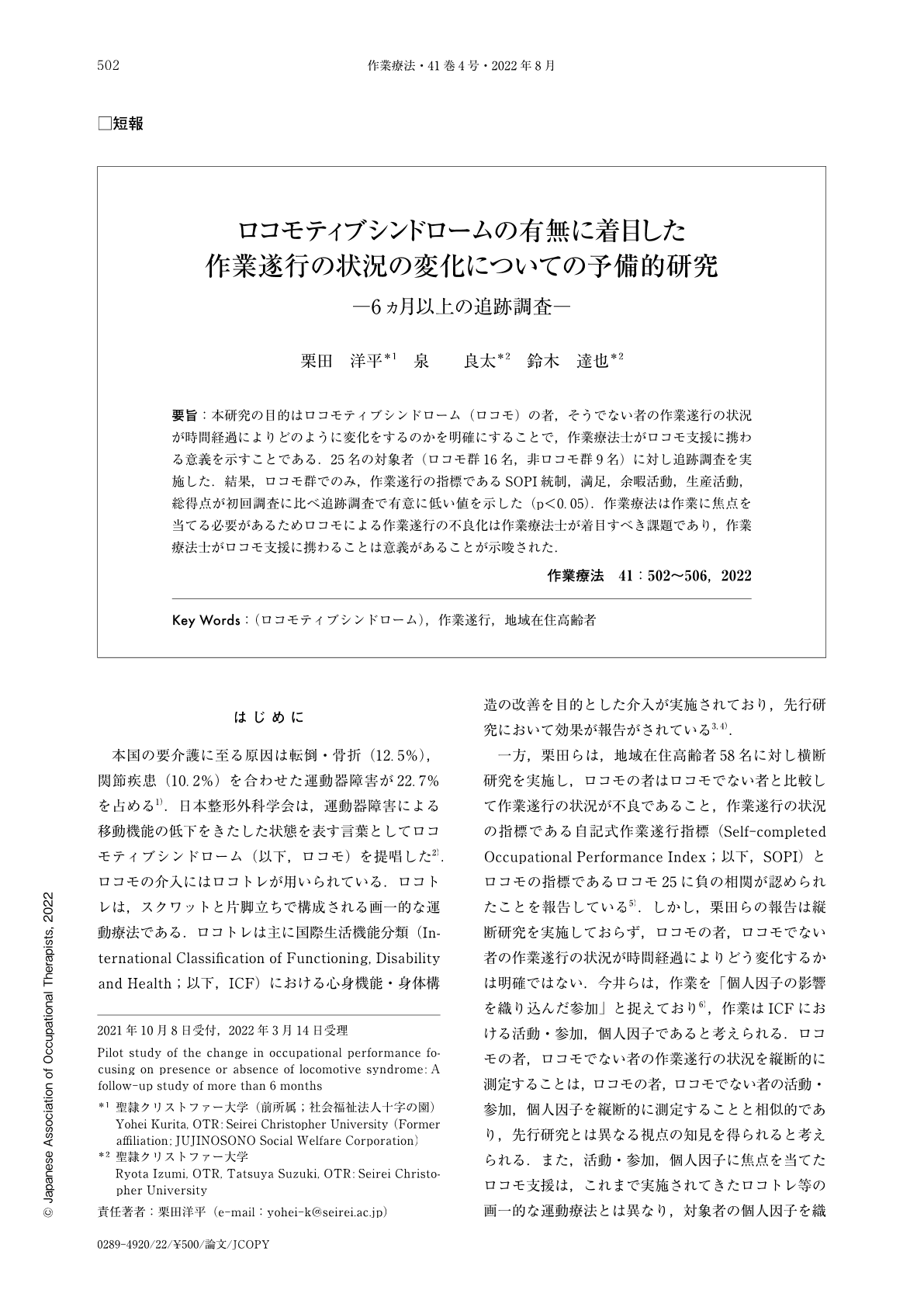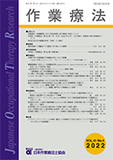Japanese
English
- 販売していません
- Abstract 文献概要
- 1ページ目 Look Inside
- 参考文献 Reference
- サイト内被引用 Cited by
要旨:本研究の目的はロコモティブシンドローム(ロコモ)の者,そうでない者の作業遂行の状況が時間経過によりどのように変化をするのかを明確にすることで,作業療法士がロコモ支援に携わる意義を示すことである.25名の対象者(ロコモ群16名,非ロコモ群9名)に対し追跡調査を実施した.結果,ロコモ群でのみ,作業遂行の指標であるSOPI統制,満足,余暇活動,生産活動,総得点が初回調査に比べ追跡調査で有意に低い値を示した(p<0.05).作業療法は作業に焦点を当てる必要があるためロコモによる作業遂行の不良化は作業療法士が着目すべき課題であり,作業療法士がロコモ支援に携わることは意義があることが示唆された.
The purpose of this study was to clarify how the occupational performance of people with and without locomotive syndrome (Locomo) changes over time, and to demonstrate the significance of occupational therapists' intervention for Locomo. A follow-up survey was conducted on 25 participants (16 in the Locomo group and 9 in the non-Locomo group). The results indicated that SOPI control, satisfaction, leisure activities, productive activities, and total scores were significantly lower in the follow-up survey than in the initial survey only in the Locomo group (p<0.05). Occupational therapy focuses on occupation. Therefore, poor performance of tasks due to Locomo is an issue that occupational therapists should focus on. The results suggest that occupational therapists intervene in Locomo.

Copyright © 2022, Japanese Association of Occupational Therapists. All rights reserved.


